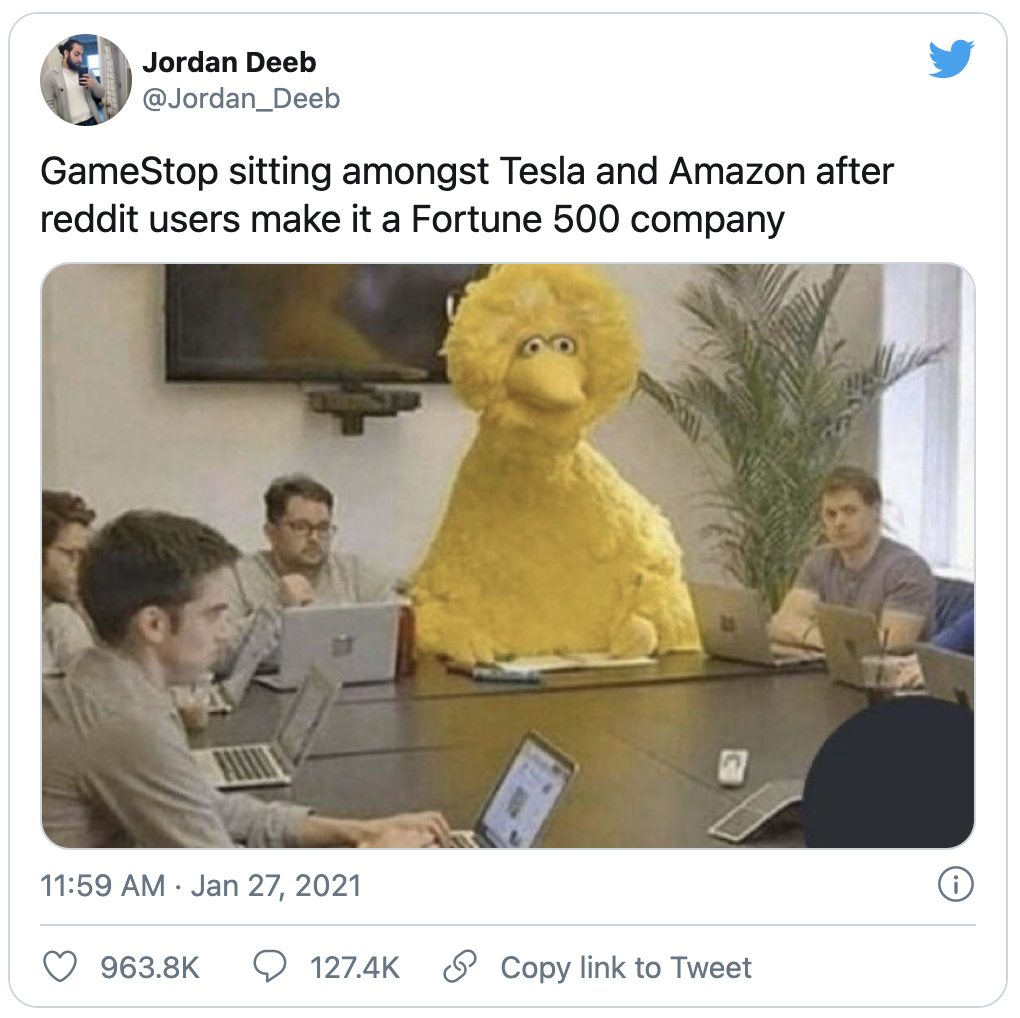The democratization of finance is more than a meme.
The 2008 financial crisis destabilized the banking and financial services industry, creating a new wave of fintech vendors incentivized to democratize finance. Empowered consumers now have lower barriers to access a broader range of financial products and services. There have been a few bumps along the way — the GameStop saga suggests that the rule book needs to be refreshed on an ongoing basis to keep up with this shift in power. Nevertheless, the great democratization of finance is a runaway train and it is waiting for no one.

Digital alternatives first entered the market by unbundling products and services of traditional incumbents, offering improved user experiences at a lower price point for consumers growing more accustomed to accessing services in an app instead of a teller’s window. Meanwhile, non-finance companies started turning into fintechs. Equipped with strong distribution channels, satisfied customers and proprietary data, these companies are embedding financial products and services into their existing offerings by using white-label financial infrastructure vendors.
While the market is vast and there is room for many winners of different shapes and sizes, traditional incumbents will need to defend their position by digitizing as quickly as possible. A move towards cashless and task automation will be top of mind as AI techniques will fill the gap that robotic process automation cannot address. Also, specialist APIs will be used to capture more financial and non-financial data to enable AI models to provide better decisioning tools. Further advancements in natural language processing technologies will reduce the dependence on human customer support across all channels.
The shift of power away from traditional incumbents will also bring an emphasis on improving the financial health of consumers. Aside from the obvious benefits of helping people better manage their finances, improving the financial health and behaviour of consumers can add immediate value to stakeholders such as landlords, lenders, utility companies and recurring subscription services. The bigger prize, however, will be owning the distribution channel and proprietary data to offer personalized financial products at the right time. AI technologies will also lower the barrier to access financial advice, helping people achieve both short-term financial goals and long-term savings and pension strategies.
The transfer of power from institutions to customers is well underway within the financial services sector and anyone with a smartphone stands to benefit.
AI News This Week
-
Elder care, wireless AI, and the Internet of Medical Things (VentureBeat)
The next generation of seniors will have better experiences with the healthcare system thanks to advancements in artificial intelligence and wireless technology. COVID-19 and the challenges presented to in-person care, have effectively demonstrated the value of remote sensor technology. Smarter sensors, software, and services will enable health monitoring to be less invasive and more automated, reducing the need for in-person caregivers, reducing hospital stays and increasing the amount of time seniors can stay in their homes. The upshot of this technology will be the restoration of dignity for many seniors requiring ongoing health monitoring. (Note: Radical Ventures has invested in Dawnlight, a leading company in this space founded by Stanford professors Fei-Fei Li, Arnold Milstein and CEO Jia Li).
-
“Liquid” machine-learning system adapts to changing conditions (MIT News)
MIT researchers have developed a type of neural network that learns on the job, not just during its training phase. These flexible algorithms, dubbed “liquid” networks, change their underlying equations to continuously adapt to new data inputs. The advance could aid decision-making based on data streams that change over time, including those involved in medical diagnosis and autonomous driving.
-
Scientists have taught spinach to send emails and it could warn us about climate change (EuroNews)
Through nanotechnology, engineers at MIT have transformed spinach into sensors capable of detecting explosive materials. These plants are then able to wirelessly relay this information back to the scientists via email. While the purpose of this experiment was to detect explosives, scientists believe it could be used to help warn researchers about pollution and other environmental conditions because of the vast amount of data plants absorb from their surroundings.
-
What happened when AI and traditional farmers competed in a strawberry-growing contest (The Print)
Four technology teams competed with farmers over four months to grow strawberries and produced 195% more strawberries by weight on average. Numerous studies show the potential for technologies like AI to boost economic growth and productivity. The World Economic Forum estimates that by 2025, 85 million jobs may be displaced by a shift in the division of labour between humans and machines, while 97 million new roles may emerge that are more adapted to the new division of labour between humans, machines and algorithms.
-
Elon Musk says his start-up Neuralink has wired up a monkey to play video games using its mind (CNBC)
Neuralink is trying to develop an implementable computer-brain interface. Musk describes it as a Fitbit in your skull with tiny wires that go into your brain. People already have a tertiary digital layer thanks to phones, computers, and applications. He said the aim of Neuralink is to increase the rate at which information can flow from the human brain to a machine.
Radical Reads is edited by Ebin Tomy (Analyst, Radical Ventures)

